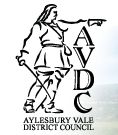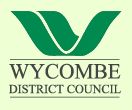Estate Planning & Wills
Lucy Goldsman from Co-op Estate Planning has given talks to our groups over the last 5 years to go through the importance of thinking ahead when it comes to estate planning. Here is a summary of things we all need to consider.
Inheritance Tax There are things you can do that have a major impact on protecting assets. In 2015/16, the Treasury received £4.6bn in inheritance tax! Inheritance tax is paid on estates valued over £325k, above which the tax rate is 40%. In Bucks, property alone pushes many people over the threshold. Married people can transfer their unused nil-rate allowance for the total estate creating a tax free allowance of £650k. Since April 2018 there is also a Residential Nil Rate Band when leaving property to direct descendants (children & grandchildren). It is currently £125k per person rising to £175k in 2020/21 so the total inheritance tax free allowance will then be £500k per person (£1m for a couple).
Trusts in wills can reduce Inheritance Tax liabilities but it is important to note that any wills pre 2007 with discretionary trusts cannot make use of the new increased tax allowance so it is important to update these wills especially.
It is also a good idea to look at wills drawn up a number of years ago as your circumstances have probably changed, executors may need to be changed etc, children may now be adults and married etc.
Long Term Care (LTC) We are all living longer but not necessarily well and care costs can be as much as £1000/week. If you require LTC, you will be means tested and anyone with assets over £22k no longer gets any financial support from local authorities. £14k-£22k some financial support will be received and for anyone with less than £14k in assets will have care paid for. The Government did propose a Care Cap of £72k (Care Act 2015) but this has not been implemented. Property can be considered in means testing.
Age UK predict that 1/3 of women and 1/6 of men over 80 will need some form of care provision and the Dilnot Commission suggest 1/10 over 60 will need LTC.
Toy Boys or sideways disinheritance as a result of remarriage. The act of remarriage automatically null and voids previous wills. So if there is a subsequent divorce, 50% of the estate will be lost and if the person with the assets dies first, 100% of the assets will go to the surviving spouse. 34 % of marriages are second marriages
How we own property is key to future safeguarding. Most people own their property jointly which means on the death of one of the joint tenants the property passes to the survivor. A widely used alternative is the tenants in common (involves a legal change with the Land Registry) where the co-owners are regarded in law as having separate and distinct shares. On the death of a co-owner their share passes in accordance of their will. A shortcoming of this solution is that it only protects half of the property and is only applicable where there are 2 people who own the property, does not protect the property if you both require care, children subsequently divorce or a family business fails.
Another solution is the Lifetime Trust (again a legal change with Land Registry) where the property is gifted to a trust that you set up, but you maintain the legal right and flexibility to continue to live in it. It can be held in trust for grandchildren etc. The rationale is that if you need residential care at some point, you no longer own a house and can only be assessed on minimal assets. Local Authorities may regard this arrangement as deliberate avoidance but if this is set up when you are fit and well, then it is unlikely that a local authority could challenge it. You can choose the Trustees; the Trust can run after your death and allows discretion on when and how assets are handed on.
Transferring a property to your children is not usually a good idea and will still be considered for inheritance tax if you continue to live in the property. This situation can also make children liable for Capital Gains Tax. Also, if married children subsequently divorce, there is no protection at all.
Wills are just one piece of the jigsaw One size does not fit all so be very wary of DIY wills. Wills are not expensive to draw up (c.£150) and they make life easier for those left behind. Wills enable you to leave things to people you want and allows you to specify guardians. However, review them periodically as things change. Having a will drawn up professionally ensures that it does what you want it to do and that it is witnessed correctly ensuring that it’s valid.
Mental Incapacity / Powers of Attorney Powers of Attorney is a legal document where you identify people you trust to make decisions on your behalf should the need arise. If someone loses mental capacity, a spouse does not have the legal right to act on their behalf. Without a Power of Attorney, you would need to apply for a Court of Protection which costs £2-3k and takes 6 – 12 months and in the meantime bank accounts are normally frozen (even when they are joint accounts).
There are 2 types of Power of Attorney:
· Property & Financial
· Health & Welfare (for when doctors can no longer consult with you)
Costs can vary dramatically but Powers of Attorney can be drawn up for £200-300. If you have an Enduring Power of Attorney (pre 2007), check that you have more than one attorney nominated and that they are appointed jointly and severely (not jointly). Also, ensure that the document is witnessed and dated prior to 13/9/2007 otherwise it will not be legally recognised.
It is really important to seek professional advice if you have questions about your own circumstances and there are any number of companies that can do this.
If you would like to invite Lucy to speak at you own group, please call Co-op Estate Planning Office: 0330 6069450
___________________________________________________
Click on the name of YOUR District below to bring up the range of activities and services that are available to you in YOUR area. For county wide services please go to our Support section.
 Aylesbury Vale |
Chiltern |
South Bucks |
 Wycombe |
Sub Navigation
- Health & Wellbeing
- Transport and Travel
- Staying Safe
- Volunteering
- Home and Care
- Learning
- Money Matters
- Upgrading your gas/electric meter to a smart meter
- TV Licensing
- Banking for the Blind & Partially Sighted
- Paying too much for insurance?
- No water meter? Living alone?
- Retirement Leasehold Warnings
- Society of Later Life Advisers (SOLLA)
- Unclaimed benefits
- Help with Heating Costs
- Energy Advice
- Benefits Calculator
- Estate Planning & Wills
- Little Known Ways to Bank at the Post Office
- Winter Home Insulation Guide for the Elderly
- Hobbies
Click on the name of YOUR District below to bring up the range of activities and services that are available to you in YOUR area. For county wide services please go to our Support section.
Aylesbury Vale |
Chiltern |
South Bucks |
Wycombe |
